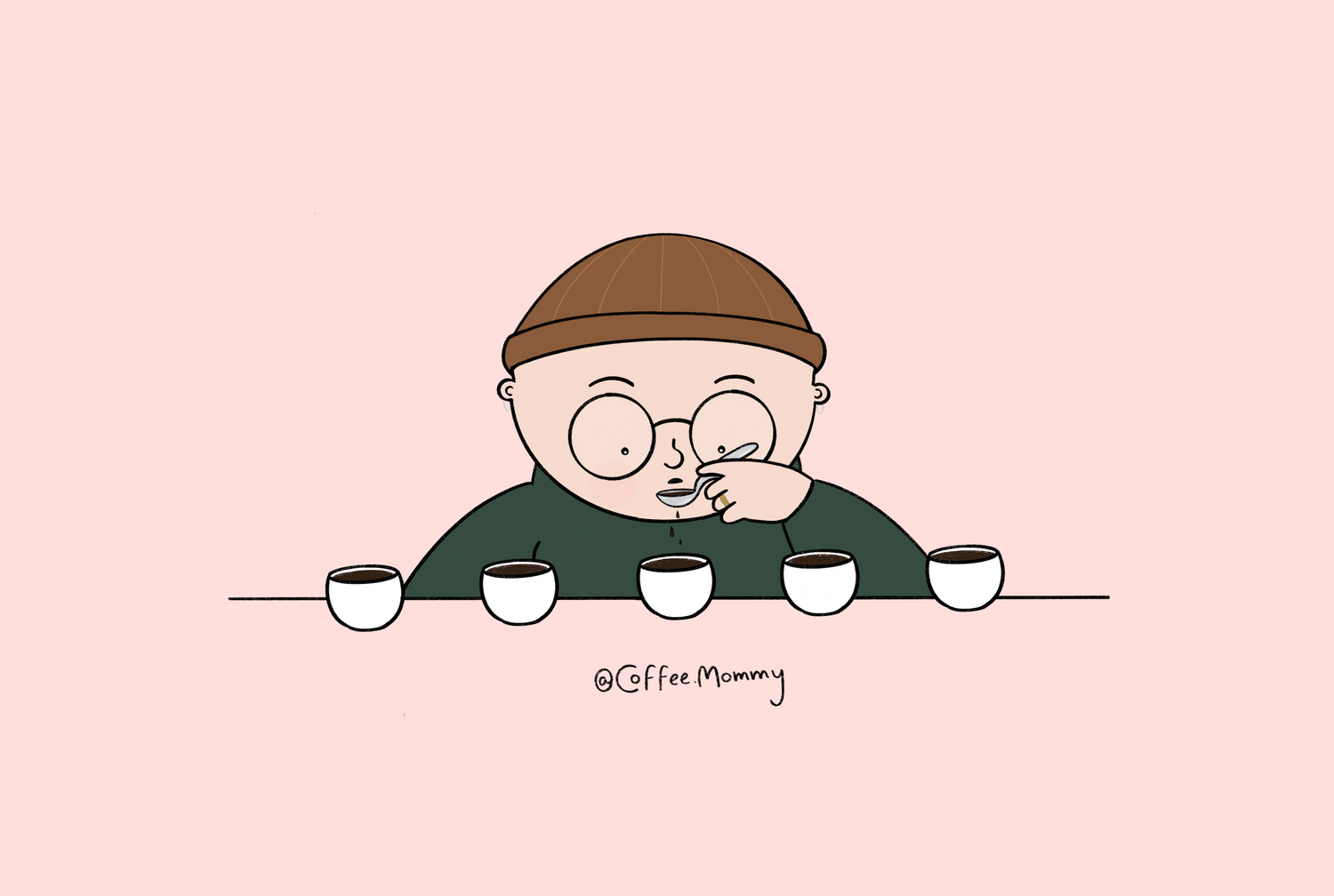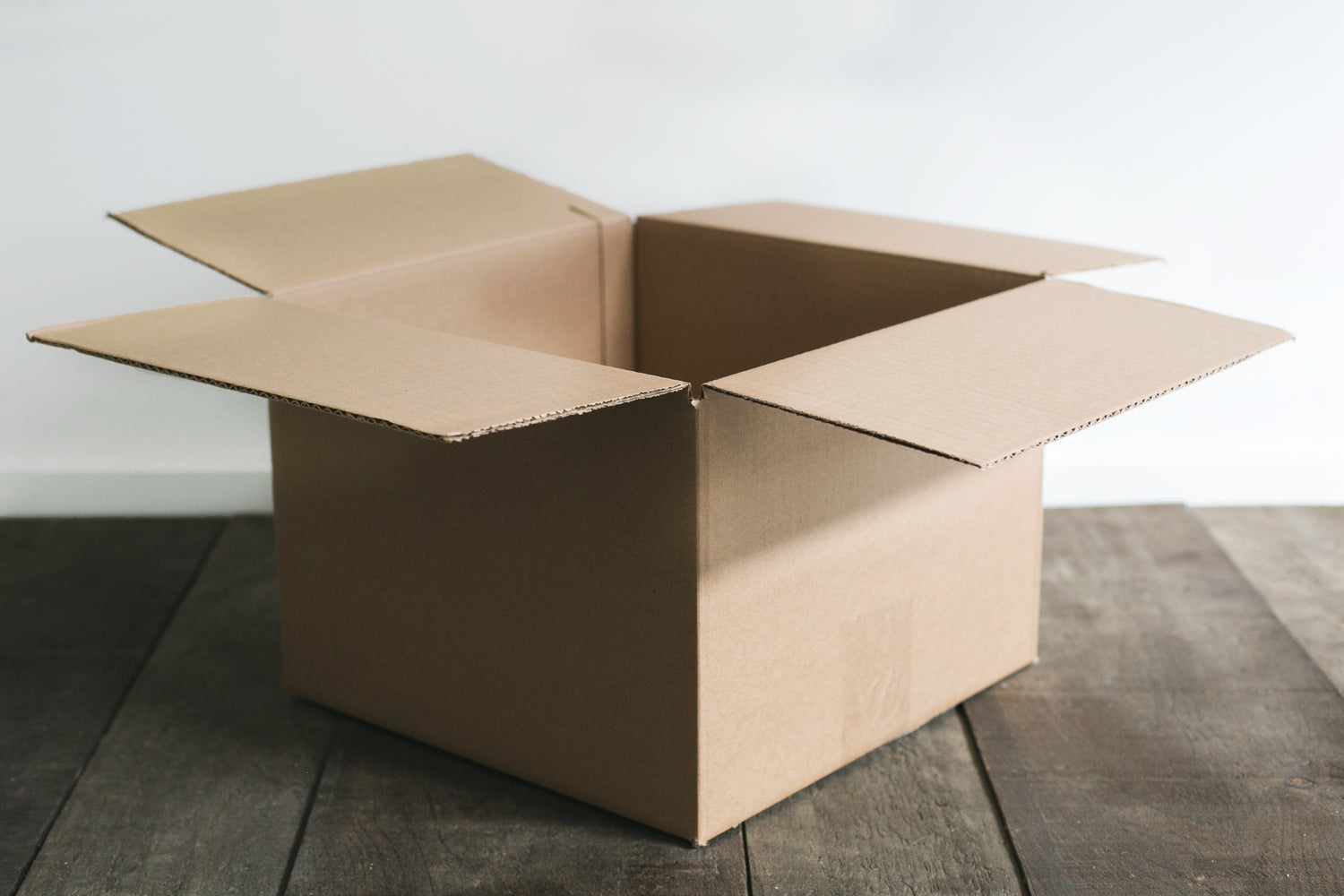Unapologetically Them

International Non-Binary People's Day was first observed in 2012, but non-binary people have existed since time immemorial. Non-binary identities are varied and can include those who identify with some or no aspects of masculinity and/or femininity, regardless of how they present themselves. Join us in celebrating, uplifting, and advocating for the wide range of people around the world who identify as non-binary. We'll start by highlighting a coffee professional we admire, Catherine Gauthier.

Tell us about your coffee journey!
I’m a non-binary barista competitor, educator, and illustrator. I’ve been in the coffee industry for five years. I started in a very popular bakery with a huge four-group La Marzocco machine, crushing coffee after coffee. I taught myself how to make latte art, and I was so curious about the whole process of making better coffee for customers. I then decided to work in a small speciality shop there, took an SCAA (at the time) barista camp, and that’s where I realized I could make coffee for a living. In 2017, I moved to Montréal to grow as a coffee professional, but also as myself, since Montréal is very queer and much more open-minded. I have volunteered in many coffee events and I have been literally living and breathing coffee. I wanted to learn, to taste, and to do everything I could to become a great coffee professional; I understood very early that if I wanted to make anything happen I’d have to push it myself. My first contact with the Barista Championship was during the SCA Expo in 2017, and I instantly knew I wanted to do it myself. I competed in the CNBC 2019, and in 2020 I placed sixth as an independent competitor. My main focus is making coffee education and tasting more accessible to everyone. The experience of being mindful of what is happening in a cup of coffee is my favourite: the first contact of the beverage and my palate is always very special and I really want to share this with people. Coffee Mommy is a platform for marginalized folks to feel like they have a space to exist in this industry. Creating this platform gave me the freedom to be myself and marry my passion for coffee and illustration. I believe coffee belongs to the people and I want to invite everybody to the cupping table.

What coffees do you get most excited about?
My first cup of coffee in the morning is usually the one I am most excited about: the aromas of a freshly brewed V60 and the first contact of this precious beverage with my palate, yes please! The ritual of making a pourover first thing in the morning is very intimate, and it’s a time I take for myself. I love to sit and slow down before starting my day; it is also a good way to be mindful and practice my tasting skills. My favourite coffees are usually washed Colombian and Ethiopian but I’m not picky: I think every single cup has a story to tell.

What does non-binary visibility mean to you?
Non-binary visibility, for me, means existing without having to explain who I am constantly, and feeling like I exist and belong in this world too. Our identity is valid and real even if it’s out of the gender binary, we exist. I came out about two years ago now during a coffee conference I was giving: I presented myself and introduced my pronouns for the first time that day. It was completely unexpected, it felt like a liberation. I started with using she/they, but slowly she/her felt like someone else and anytime someone used they/them, I had butterflies in my stomach. I didn't know if I was allowed to be non-binary, because I didn’t know anyone that looked like me. I thought that I wasn’t androgynous enough and that maybe, it was just a phase. The pandemic gave me the freedom to completely be myself, and the more I talked and shared about being non-binary, the more it felt like me. Being non-binary means to define myself outside the gender binary and to be who I am, loudly and proudly, without any barriers. I want to be more than the gender I was assigned at birth, I’m so much more than this. Visibility isn’t just about gender-neutral-anything, it’s about recognizing that non-binary and genderqueer people exist and there’s no right way to do it. I am neither a boy or a girl, I am a "them," unapologetically.

Tell us about your coffee journey!
I’m a non-binary barista competitor, educator, and illustrator. I’ve been in the coffee industry for five years. I started in a very popular bakery with a huge four-group La Marzocco machine, crushing coffee after coffee. I taught myself how to make latte art, and I was so curious about the whole process of making better coffee for customers. I then decided to work in a small speciality shop there, took an SCAA (at the time) barista camp, and that’s where I realized I could make coffee for a living. In 2017, I moved to Montréal to grow as a coffee professional, but also as myself, since Montréal is very queer and much more open-minded. I have volunteered in many coffee events and I have been literally living and breathing coffee. I wanted to learn, to taste, and to do everything I could to become a great coffee professional; I understood very early that if I wanted to make anything happen I’d have to push it myself. My first contact with the Barista Championship was during the SCA Expo in 2017, and I instantly knew I wanted to do it myself. I competed in the CNBC 2019, and in 2020 I placed sixth as an independent competitor. My main focus is making coffee education and tasting more accessible to everyone. The experience of being mindful of what is happening in a cup of coffee is my favourite: the first contact of the beverage and my palate is always very special and I really want to share this with people. Coffee Mommy is a platform for marginalized folks to feel like they have a space to exist in this industry. Creating this platform gave me the freedom to be myself and marry my passion for coffee and illustration. I believe coffee belongs to the people and I want to invite everybody to the cupping table.

What coffees do you get most excited about?
My first cup of coffee in the morning is usually the one I am most excited about: the aromas of a freshly brewed V60 and the first contact of this precious beverage with my palate, yes please! The ritual of making a pourover first thing in the morning is very intimate, and it’s a time I take for myself. I love to sit and slow down before starting my day; it is also a good way to be mindful and practice my tasting skills. My favourite coffees are usually washed Colombian and Ethiopian but I’m not picky: I think every single cup has a story to tell.

What does non-binary visibility mean to you?
Non-binary visibility, for me, means existing without having to explain who I am constantly, and feeling like I exist and belong in this world too. Our identity is valid and real even if it’s out of the gender binary, we exist. I came out about two years ago now during a coffee conference I was giving: I presented myself and introduced my pronouns for the first time that day. It was completely unexpected, it felt like a liberation. I started with using she/they, but slowly she/her felt like someone else and anytime someone used they/them, I had butterflies in my stomach. I didn't know if I was allowed to be non-binary, because I didn’t know anyone that looked like me. I thought that I wasn’t androgynous enough and that maybe, it was just a phase. The pandemic gave me the freedom to completely be myself, and the more I talked and shared about being non-binary, the more it felt like me. Being non-binary means to define myself outside the gender binary and to be who I am, loudly and proudly, without any barriers. I want to be more than the gender I was assigned at birth, I’m so much more than this. Visibility isn’t just about gender-neutral-anything, it’s about recognizing that non-binary and genderqueer people exist and there’s no right way to do it. I am neither a boy or a girl, I am a "them," unapologetically.





